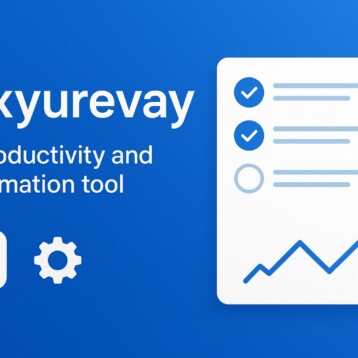
Image by Gerd Altmann from Pixabay
Social media companies have played a very important role in shaping the online experience. For a number of years, Facebook, MySpace and Twitter had a shared monopoly on the social media industry. This has changed in recent years, as new social media sites are launched almost every day.
According to one estimate, there are over 800 social media sites around the world. However, many social media sites never gain traction or end up going totally defunct. Others make a big name for themselves and manage to capture market share from competing giants like Facebook. Pinterest is one of the sites that manage to make its mark.
A number of new social media platforms were launched over the past couple of years. Some of them show a lot of promise. Here are some of the biggest ones to look out for.
Scalefluence
ScaleInfluence is an influencer marketing hub. It is a great platform for connecting influencers and marketers.
You could describe ScaleInfluence as the LinkedIn for influencer marketing. Influencer marketing has a tremendous ROI and is growing rapidly. However, many brands struggle to find great influencers. ScaleInfluence is solving that problem.
ScaleInfluence is far more than just a directory of influencers. It has a brilliant analytics platform, which is geared towards matching influencers and brands. They can be paired with each other based on followers, the types of initiatives that the influencer has worked on and much more.
Anchor
It is becoming more common for social media platforms to specialize in a certain type of media. Facebook and Twitter are more generic sites that allow users to share all forms of written and visual content. Pinterest and Instagram changed things up by giving users a more specialized experience by focusing solely on images.
Podcasting is still a relatively new medium, so there haven’t been nearly as many sites that focus exclusively on it. Anchor is one of the pioneers in the podcasting market. This social media app has one purpose – making it easier for users to create and distribute podcasts.
Anchor has a lot of potential as a company. The podcast market is expected to grow to $1 billion by 2021. Since there are relatively few competitors, it can capture a large share of podcast creators and viewers.
Vero
Some social media startups intend to reinvent the wheel. They are approaching the social media industry with an emphasis on an entirely new form of media or are offering functions that were previously overlooked by larger competitors. Vero is a startup that is shaking things up in a much more subtle way. This company is putting a small but important twist on an established form of social media.
On the surface, the Vero platform is very similar to Instagram. Users might not immediately be able to see its key selling point. However, that becomes much clearer as they become more familiar with the functionality of this cutting-edge image sharing platform.
The biggest difference between Vero and Instagram is the privacy features. Users can segment their contacts by acquaintances, followers they don’t know personally, close friends and casual friends. They can assign different privacy levels to each group. They don’t have to choose between making all of their posts completely public or giving every follower unrestricted access to protected content.
Lasso
Lasso is a quirky app that has a lot of potential. You could describe it as the Twitter of video sharing.
This app makes it easy to create and share short videos. Users won’t be able to share massive, two-hour videos like you would with YouTube, so it won’t be the ideal platform for sharing discussions on complex political issues or video tutorials on rebuilding a carburetor. However, you can create and share videos much more quickly, which means that they could potentially go viral. It will be a great alternative for making and sharing videos that people want to easily share with their close friends.
Steemit
Steemit is a website that is built on the premise that Reddit used. Users have the option to upvote and downvote content. Digg, Voat and a number of other platforms have tried doing something similar. So, what makes Steemit special?
This site doesn’t just reward users with karma when they receive votes. They use blockchain to provide virtual currencies to users that earn votes on the platform. They can use those currencies to purchase actual gifts. Users can purchase Steemit credits with bitcoin or other cryptocurrencies and offer them as rewards to people that share great content.
New Social Media Sites Are Making their Mark
There are a lot of new social media sites on the market. They are making a big difference and offering great features that were previously unavailable on older platforms.










